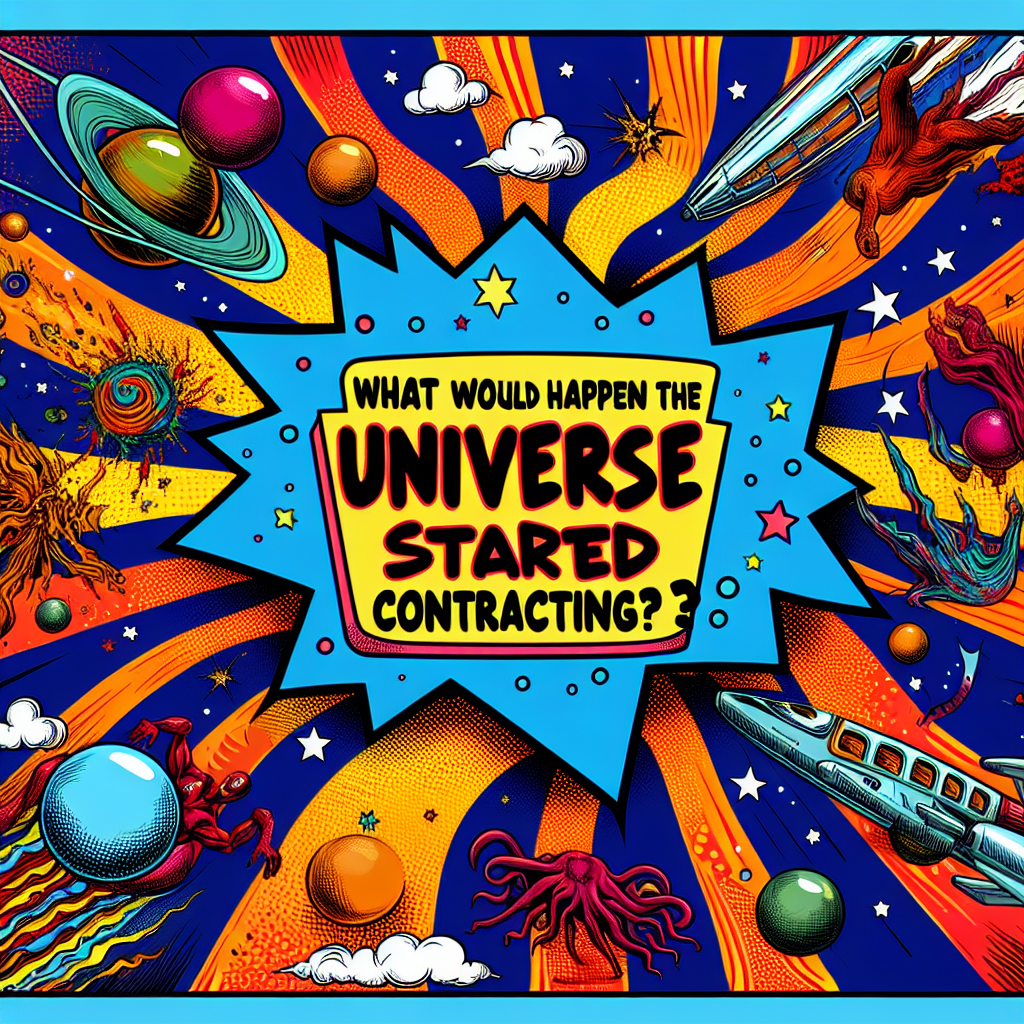The universe began as an infinitely hot and dense point, expanding rapidly in an event known as the Big Bang. This expansion has been ongoing for around 13.8 billion years, with galaxies moving away from each other. But what if this process were to reverse? Imagine a cosmic "rewind" button, where the universe starts contracting instead of expanding.
To understand what would happen, let's consider a simple analogy. Picture a big, inflated balloon with galaxies represented by dots on its surface. As the balloon inflates, the dots move away from each other. Now, imagine the balloon suddenly starts deflating – the dots would begin moving towards each other.
In a contracting universe, the cosmos would start to shrink. Galaxies would stop moving away from each other and begin to fall back towards a central point. The distance between objects would decrease, and the universe would become increasingly dense.
One consequence of this contraction would be a rise in temperature. As matter collapses, it heats up, much like when you compress a gas in a cylinder, causing it to warm up. This means the universe would become hotter and hotter as it contracts.
Another effect would be the reappearance of black holes. In an expanding universe, black holes slowly evaporate through a process known as Hawking radiation. However, if the universe were contracting, this evaporation would slow and eventually stop. Black holes would begin to grow, feeding on surrounding matter as the universe collapses.
The fabric of spacetime would also be severely distorted. According to Einstein's theory of general relativity, massive objects warp spacetime, causing it to curve. In a contracting universe, the curvature of spacetime would become more extreme, leading to bizarre gravitational effects.
Time itself would be affected, as the contraction would cause time dilation to occur in reverse. Imagine time running in reverse, with events unfolding in reverse order. It's a mind-bending concept, but in a contracting universe, the flow of time would indeed appear to reverse.
Cosmic microwave background radiation, the residual heat from the Big Bang, would also be affected. As the universe contracts, this radiation would become increasingly concentrated, effectively "re-compression" of the cosmic radiation.
The contraction would also lead to a gradual decrease in the speed of light. According to Einstein's theory of special relativity, the speed of light is always constant, but in a contracting universe, this constancy would give way to a slowing of light speed.
Eventually, the contraction would lead to a "big crunch," a hypothetical point where the universe collapses back into an infinitely hot and dense state, possibly triggering a new Big Bang. This cycle of expansion, contraction, and rebirth is known as the "eternal return" hypothesis.
It's essential to note that the laws of physics as we currently understand them would likely break down at extremely high densities and energies, making predictions increasingly uncertain.
In conclusion, a contracting universe would be a realm where the fundamental laws of physics are pushed to their limits, and our understanding of the cosmos becomes increasingly murky.
In the end, the possibility of a contracting universe serves as a thought-provoking exercise, encouraging us to contemplate the nature of existence and the intricate dance of cosmic forces that shape our reality.
Many unanswered questions still linger, but exploring these "what ifs" allows us to deepen our understanding of the universe and its mysteries. Ultimately, the allure of the unknown inspires us to continue exploring, seeking answers to the biggest questions of all – what is the universe, and what is our place within it?

Popular Space Questions
Find answers to the trending space questions being asked by our community on social media.
- How many galaxies are there in the universe?
- How far is Pluto from Earth?
- How many planets are in the Milky Way?
- How many planets are in our solar system?
- How big is the Earth?
- What would happen if a rogue planet entered our solar system?
- What are the planets in order?
- What if we found a way to manipulate gravity?
- What would happen if a pulsar's beam hit Earth?
- What would happen if a quasar aimed its jet at Earth?